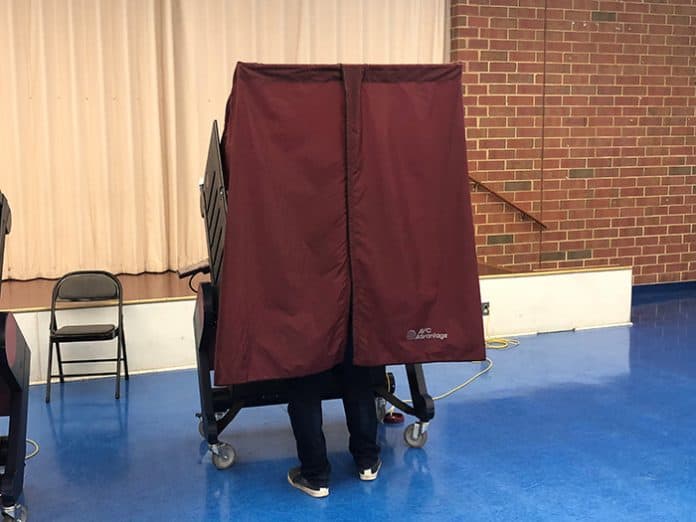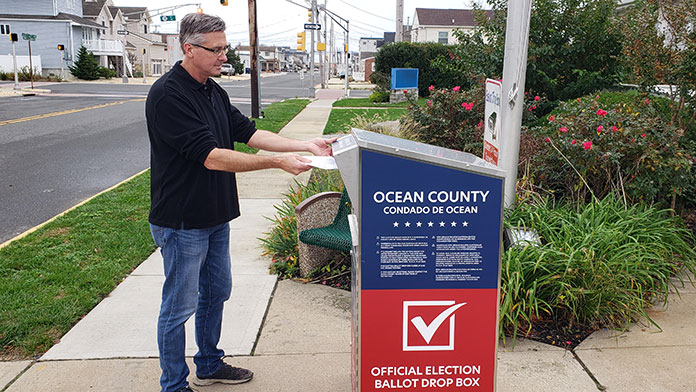
OCEAN COUNTY – What a difference a year makes. Last year due to the coronavirus health crisis primary elections were done through the mail with special ballot boxes set up across the state.
Live voting was limited for November’s general election and primarily included voting by mail. This year’s election process will look different but workers of the County’s Board of Election only have a few months to train staff, buy new voting machines and plan for large areas of space to store records.
Before that county officials need to select a voting system to meet the requirement of 10 days of early voting thanks to a measure approved recently by Governor Phil Murphy.
Members of the Ocean County Board of Commissioners discussed the matter during a recent Board meeting but many questions remain as to how the new systems will be put into effect along with new rules and methods of record keeping.
Commissioner Virginia Haines noted that this was a “big change” for the county and that she and County Administrator Carl Block learned a lot of the expectations on counties during a recent trip to Trenton where they got a briefing on the new law.
The county will go from mail-in only to a system of early voting and it is a rush job that county clerks and elections officials will have to adapt to quickly, according to Haines.
The change faced criticism from county officials throughout the state, and some wanted the changes implemented next year to allow for more transition time.
One idea that was rejected was a proposal to start the early voting as a pilot program in one state’s smaller counties as opposed to implementing it immediately. Haines said she favored the pilot program idea over what was decided.

Under the new law, each county will be mandated to establish between three and seven polling places where machine voting can occur for a period of nine days.
Early voting would end two days prior to the general election which is always held on the Tuesday after the first Monday of November. Following that the county would need to go back to the established polling system for regular voting.
The plan could cost counties in the Garden State millions of dollars in having to purchase the new voting machines, electronic cards, security and staffing as well as recording equipment. An estimate of the exact cost is not available yet but a figure of $77 million is the price tag estimated by the Office of Legislative Services which is a nonpartisan body.
Normally, poll workers are hired to work one day in June for the primary election and one day in November for the general election but the new plan calls for workers to be paid for 10 days in October as well. As to who is fitting the bill for that additional cost is unknown but County officials want to know.
The plan would create an entirely new voting system where voters would check in at several voting stations within a polling location and receive an electronic card resembling a hotel room key. They would then cast their vote and return the card to a polling worker who would reprogram it for the next voter.
All machines and the records produced would be impounded and protected by law enforcement until the general election was finished. Records would have to be secured for three years.
Secretary of State Tahesha Way, whose office oversees the initiative and Democrat activist Stacey Abrams joined the governor for the introduction of the new law.
There are four models of voting machine for counties to chose from. It was noted that in utilizing new technology with early voting a new system would be used that county staff and voters are not accustomed to. Also recognized was the short amount of time that exists between the time new voting equipment will be delivered and the election itself.






